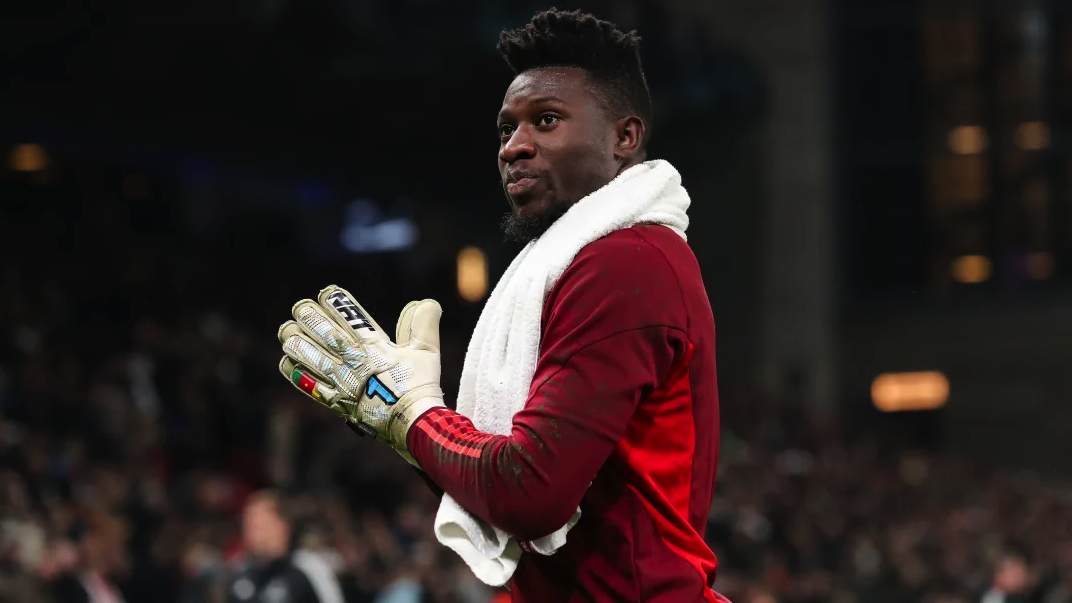Andre Onana kept his fifth Premier League clean sheet of the season in Manchester United’s 3-0 win over Everton at Goodison Park, a game defined by Alejandro Garnacho’s wonder goal and a statement Kobbie Mainoo performance on his first league start.
A shutout against an Everton side struggling near the wrong end of the table even before a shock 10-point deduction for breaching financial rules might ordinarily be relatively unremarkable.
But, for Onana, it will be another confidence booster after a shaky start to his United career following a big money summer transfer to Inter. Already, the Cameroon international is joint leader in this season’s Golden Glove race alongside Nick Pope and Sam Johnstone.
In the wider context, it was United’s 500th clean sheet in the Premier League era, reaching the landmark number well ahead of their traditional rivals.
United have had plenty of established number ones throughout the last 31 years, starting with Peter Schmeichel – one of just 13 overseas players in the Premier League when the new competition began in August 1992. The Dane presided over United’s first Premier League clean sheet, although a poor start to the season meant it didn’t come until the fourth game – a 1-0 away win at Southampton.

When Schmeichel decided to leave Old Trafford in 1999, citing his inability to keep up with the demands of playing at the very highest level, United struggled to replace him. Mark Bosnich, Massimo Taibi and former back-up Raimond van der Gouw all had spells as first choice, before 1998 World Cup winner Fabien Barthez arrived in the summer of 2000.
The Frenchman had undoubted highs at United, but he was inconsistent and prone to the occasional error or several – Highbury in November 2001, anyone? – and ended up being replaced as a starter by little known American stopper Tim Howard in 2003. Athough he would go on to become a Premier League legend with Everton, Howard’s stint was also a bit like a rollercoaster and he ended up in a battle for the gloves with Roy Carroll that hardly inspired confidence in the defense in front of them.
Six years after Schmeichel’s exit, United finally managed to replace him when Edwin van der Sar arrived from Fulham in 2005. At 34, it seemed it would only be a short-term solution, but the Dutchman, who United had actually wanted back in 1999 but lost out to Juventus, was a reliable and calming presence for the next six years. During 2008/09, he even went an astonishing 1,311 minutes in the Premier League without conceding to set a new world record. Tomasz Kuszczak was back up.
When Van der Sar hung up his gloves aged 40 in 2011, United had already identified their next star. David de Gea was just 20 when he arrived for £18.9m from Atletico Madrid but, despite early struggles and sharing duties with Anders Lindegaard, who had vowed not to just sit on the bench at Old Trafford and pick his nose, the Spaniard was the best in the world by 2014.
United very nearly sold De Gea to Real Madrid in 2015, at which point Sergio Romero was getting the nod due to the uncertainty, but failed to file the paperwork due to a fax machine scuppered the deal. De Gea’s form after 2018 went in peaks and troughs and the decision was made in 2023 not to renew his contract, allowing him to leave after 12 years and pursuing Andre Onana instead.
